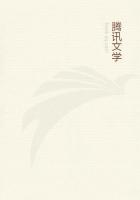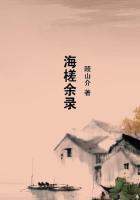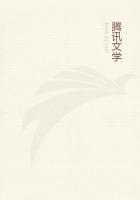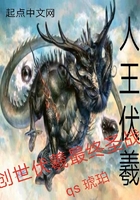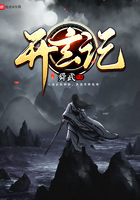The music of bagpipe, fife and drum brought them all out of Haddo's Hole into High Street.It was the hour of the morning drill, and the soldiers were marching out of the Castle.From the front of St.Giles, that jutted into the steep thoroughfare, they could look up to where the street widened to the esplanade on Castle Hill.Rank after rank of scarlet coats, swinging kilts and sporrans, and plumed bonnets appeared.The sun flashed back from rifle barrels and bayonets and from countless bright buttons.
A number of the older laddies ran up the climbing street.Mr.
Traill called Bobby back and, with a last grip of Glenormiston's hand, set off across the bridge.To the landlord the world seemed a brave place to be living in, the fabric of earth and sky and human society to be woven of kindness.Having urgent business of buying supplies in the markets at Broughton and Lauriston, Mr.
Traill put Bobby inside the kirkyard gate and hurried away to get into his everyday clothing.After dinner, or tea, he promised himself the pleasure of an hour at the lodge, to tell Mr.Brown the wonderful news, and to show him Bobby's braw collar.
When, finally, he was left alone, Bobby trotted around the kirk, to assure himself that Auld Jock's grave was unmolested.There he turned on his back, squirmed and rocked on the crocuses, and tugged at the unaccustomed collar.His inverted struggles, low growlings and furry contortions set the wrens to scolding and the redbreasts to ****** nervous inquiries.Much nestbuilding, tuneful courtship, and masculine blustering was going on, and there was little police duty for Bobby.After a time he sat up on the table-tomb, pensively.With Mr.Brown confined, to the lodge, and Mistress Jeanie in close attendance upon him there, the kirkyard was a lonely place for a sociable little dog; and a soft, spring day given over to brooding beside a beloved grave, was quite too heart-breaking a thing to contemplate.Just for cheerful occupation Bobby had another tussle with the collar.He pulled it so far under his thatch that no one could have guessed that he had a collar on at all, when he suddenly righted himself and scampered away to the gate.
The music grew louder and came nearer.The first of the route-marching that the Castle garrison practiced on occasional, bright spring mornings was always a delightful surprise to the small boys and dogs of Edinburgh.Usually the soldiers went down High Street and out to Portobello on the sea.But a regiment of tough and wiry Highlanders often took, by preference, the mounting road to the Pentlands to get a whiff of heather in their nostrils.
On they came, band playing, colors flying, feet moving in unison with a march, across the viaduct bridge into Greyfriars Place.
Bobby was up on the wicket, his small, energetic body quivering with excitement from his muzzle to his tail.If Mr.Traill had been there he would surely have caught the infection, thrown care to this sweet April breeze for once, and taken the wee terrier for a run on the Pentland braes.The temptation was going by when a preoccupied lady, with a sheaf of Easter lilies on her sable arm, opened the wicket.Her ample Victorian skirts swept right over the little dog, and when he emerged there was the gate slightly ajar.Widening the aperture with nose and paws, Bobby was off, skirmishing at large on the rear and flanks of the troops, down the Burghmuir.
It may never have happened, in the years since Auld Jock died and the farmer of Cauldbrae gave up trying to keep him on the hills, that Bobby, had gone so far back on this once familiar road; and he may not have recognized it at first, for the highways around Edinburgh were everywhere much alike.This one alone began to climb again.Up, up it toiled, for two weary miles, to the hilltop toll-bar of Fairmilehead, and there the sounds and smells that made it different from other roads began.
Five miles out of the city the halt was called, and the soldiers flung themselves on the slope.Many experiences of route-marching had taught Bobby that there was an interval of rest before the return, so, with his nose to the ground, he started up the brae on a pilgrimage to old shrines.just as in his puppyhood days, at Auld Jock's heels, there was much shouting of men, barking of collies, and bleating of sheep all the way up.Once he had to leave the road until a driven flock had passed.Behind the sheep walked an old laborer in hodden-gray, woolen bonnet, and shepherd's two-fold plaid, with a lamb in the pouch of it.Bobby trembled at the apparition, sniffed at the hob-nailed boots, and then, with drooped head and tail, trotted on up the slope.
Men and dogs were all out on the billowy pastures, and the farm-house of Cauldbrae lay on the level terrace, seemingly deserted and steeped in memories.A few moments before, a tall lassie had come out to listen to the military music.A couple of hundred feet below, the coats of the soldiers looked to her like poppies scattered on the heather.At the top of the brae the wind was blowing a cold gale, so the maidie went up again, and around to a bit of tangled garden on the sheltered side of the house.The "wee lassie Elsie" was still a bairn in short skirts and braids, who lavished her soft heart, as yet, on briar bushes and daisies.
Bobby made a tour of the sheepfold, the cowyard and byre, and he lingered behind the byre, where Auld Jock had played with him on Sabbath afternoons.He inspected the dairy, and the poultry-house where hens were sitting on their nests.By and by he trotted around the house and came upon the lassie, busily clearing winter rubbish from her posie bed.A dog changes very little in appearance, but in eight and a half years a child grows into a different person altogether.Bobby barked politely to let this strange lassie know that he was there.In the next instant he knew her, for she whirled about and, in a kind of glad wonder, cried out:

